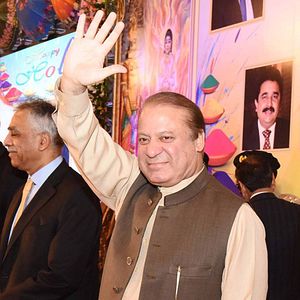Pakistan Muslim League-Nawaz (PML(N)) leader and former Prime Minister Nawaz Sharif, who resigned from his political party’s leadership after the country’s Supreme Court found him guilty in a corruption case, is expected to return to his previous role in the party sooner than anyone might have anticipated.
On Friday, Sharif’s political party, which is also in power at the federal level, successfully amended the Political Parties Order (PPO). With the current amendment to PPO, Sharif can lawfully become chief of his political party despite the court’s ruling, which previously barred him from holding any public office. According to the PPO’s previous language, Sharif became ineligible from holding any public office after he was disqualified by the country’s top court more than a month ago.
While the government claims that an amendment to the order was part of the party’s reform agenda, it’s widely believed that the amendment to PPO is only an effort to restore Sharif’s central role in the party.
Any such attempts are not only going to complicate the party’s inner divisions, but they will also put a number of Pakistani state institutions on a collision course.
Sharif’s daughter, Maryam Nawaz, appears to have taken the lead role in terms of steering the party into the general elections by keeping the existing power structure intact. Moreover, it has become increasingly obvious that Maryam is following her father’s policy of confrontation rather than reconciliation with other state institutions, particularly the military. The moderate factions of the party have always seen such a policy approach as a major challenge that continues to create unnecessary hurdles for the party.
On the other hand, a concerted effort is underway within the ruling party to change the existing power structures. There are reports that factions close to the second-tier leadership of the ruling PML(N) have made attempts to push the role of Nawaz’s loyalists to the periphery regarding a number of strategic issues. With Sharif’s disqualification from the leadership, the second tier leadership of the party is eyeing a major role as far as the organization’s style of governance and priorities are concerned.
Moreover, the attempt to bring back Sharif into the party’s leadership through a constitutional amendment that had remained a non-issue for more than three years is only going to vex the judiciary. So far, the ruling party has remained focused on the question of bringing Sharif back to power rather than addressing the judiciary’s concerns regarding rampant corruption, which looms large in all sectors of government and bureaucracy. Last week, the Supreme Court of Pakistan, dismissed a petition filed by the ruling party’s legal team to review Sharif’s disqualification in the Panama Papers corruption scandal. “For reasons to be recorded later, all these review petitions are dismissed,” said the court.
While the ruling party has termed the court’s judgment a disappointment, it has become clear that Sharif’s political organization is going to use all constitutional mechanisms to restore him back to power. It’s likely that the court may intervene to ensure that the disqualification of Sharif remains in place even if that requires the former clamping down on the constitutional amendment which is underway through the PPO.
For many, Sharif’s disqualification was also due to his inability to recognize the growing urgency to appoint a competent team that can respond aptly to increasing domestic and international challenges. Rather, Sharif, while in power, was intent on keeping all important portfolios with himself or his loyalists.
After becoming prime minister in 2013, Sharif never sought to make it clear to other major state institutions that he was not the leader of the 1990s whose only focus was to consolidate power rather than take on critical national challenges in consultation with all important stakeholders, particularly the military. It’s one of the reasons that the military in Pakistan has never felt comfortable working with Sharif. Last week, the Chief of Pakistan’s military, General Qamar Javed Bajwa, while meeting with a team of parliamentarians, said that Pakistan had to face many problems because of “no full-fledged foreign minister.”
Sharif’s “dislike, arguably contempt, for judges and generals was on full display in his last year in office… Nawaz got done to him what he probably fantasized about doing to judges and generals if he had the power,” noted Cyril Almeida, a prominent columnist in Pakistan. Almeida further observed that “it seems, as long as Nawaz is willing to shut up — and possibly stay out of the country — they [the military] are willing to shut up too.”
Sharif’s party loyalists may have been able to find a constitutional mechanism to pave the way for his return, it’s impossible that the current accountability campaign, courts judgments, and the military’s disdain will allow Sharif smooth return back to power.






























